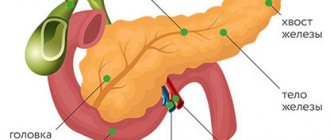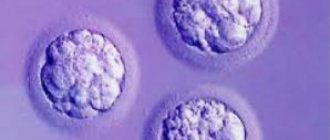The start of the menstrual cycle means the initial day of the onset of menstruation. This natural phenomenon occurs due to the rejection of the inner layer of the uterus.
Bleeding is different for each woman, from a large amount of bleeding to minor smears. In a situation where the inner layer of the uterus is pushed out and comes out, the female body prepares to form a new egg.
Each cycle is a kind of preparatory process of a woman’s body for conception and pregnancy.
The first stage of the cycle is associated with a painful feeling in the lower abdomen, general weakness, drowsiness and nervousness. At this time, it would be good not to perform active loads and, if possible, devote more time to rest and get rid of everything negative.
Painful feelings can be reduced with the following medications:
- Spasmalgon,
- No-shpa,
- Paracetamol.
No-shpa Paracetamol Spazmalgon
However, you must always remember that all drugs can be used only with the recommendation of a doctor.
In women, such signs normally make themselves felt very inexpressively.
Often the cause of menstruation with pain can be:
- Genetic predisposition. If direct relatives on the female line suffered from preliminary pain, then there is a sufficient probability of similar manifestations in the subsequent female generation;
- The appearance of tension in the pelvis due to compression of the muscles of the uterus;
- Pressure on nerve fibers due to the growth of the uterine cavity;
- Excessive sensitization of the body to natural phenomena;
- An increase in the amount of prostaglandin hormones , which provide uterine contractions and result in pain;
- Retention of blood in the pelvis and swelling of tissues in this location;
- Gynecological spiral. It affects even greater contraction of the uterine muscles, which results in pain.
And yet, quite often, critical days accompanied by pain are related to inflammatory phenomena in the genitourinary organs. In order to exclude this cause of painful feeling, it is necessary to undergo tests and consult with a gynecologist and, if necessary, undergo a course of therapy.
Follicular stage and ovulation
Features of the stage:
- The next stage of the menstrual cycle continues approximately 14 days after the end of bleeding. And yet, the nervous state and lifestyle can affect the normal duration of this stage.
- At this time, a hormone is produced in the appendages that affects the development of follicles. After some time, an egg matures inside the main follicle.
- The follicular stage is characterized by the synthesis of estrogen , a hormone that ensures the growth of a new layer of the uterine wall. This female hormone creates a biological environment in the cervix, making it safe for sperm.
- After 2 weeks, the luteinizing hormone LH is released in the woman’s body, by which time the production of the hormone FSH decreases. The LH hormone has a beneficial effect on the mucus in the cervix, making it sensitive to sperm. Under the influence of this hormone, a follicle is formed.
Day of the cycle and signs of pregnancy
With a constant menstrual cycle lasting approximately 28 days, the twentieth day of the cycle can mean, as usual, 5-6 days of pregnancy.
This may indicate that fertilization occurred in the middle of the cycle, and at the moment a whole week of formation of the unborn child has already started. At this only phase, a promising baby looks like a concentration of cells that divide and develop very quickly.
The signs of fertilization that the female body feels at a given period of time, as a rule, do not go beyond nausea, forgetfulness, and transformation of tactile preferences. In addition, already at this time changes in the mammary glands may begin, and its sensitization increases. But more often, at such an early stage, women do not feel any serious changes in their own body.
Most expectant mothers, on the 23rd day of the cycle, feel the initial signs of conception:
- Odors begin to make themselves felt unusually pronounced; every morning a woman may experience a nauseating feeling or vomiting. Special ultra-sensitive pregnancy tests can reveal an unexpressed second line even at such a short period of time, since the level of hCG increases daily during conception.
- When during the initial days, following fertilization , the mammary glands ache and the nipples become larger, on the 23rd day of the cycle this phenomenon will continue.
- At this time, it becomes impossible for particularly sensitive women to sleep on their breasts , and every touch, even an accidental one, brings pain. On the 24th day of the cycle, signs of conception are expressed without any special features. It is also necessary to understand that all women have different characteristics and body structures, and sometimes women may not feel the initial symptoms of pregnancy for quite a long time.
- If the next menstruation is close, pregnant women may feel slight nagging pain in the lower abdomen , as well as emotional instability and nausea. Most ladies believe that the cause of this condition is premenstrual syndrome, but still this phenomenon is due to the fact that the female body has not yet “understood” that it is the bearer of new life.
Should you trust your feelings?
Currently, medicine has a large arsenal of tools to establish pregnancy at the earliest stages. As usual, they are true in the initial weeks after the absence of menstruation.
Emotionality, characteristic of the fair sex, can help a woman feel even minor changes in her own body and, even before the end of the menstrual cycle, understand that all the signs of the development of a small miracle are present.
Of course, they won’t tell you the specific moment of fertilization, but the starting date of each cycle is crossed out on the calendar. Gynecologists will take this date as fundamental in establishing the duration of gestation of the embryo and set the time of future birth.
Women who are planning to have a child in the family have a much better chance of calculating the time of delivery if they controlled ovulation, which almost always happens after a certain time after the menstrual period.
The time limit for a cycle varies from person to person, but it is often 4 weeks and can be shorter or longer. From the moment of conception, many transformations occur in the female body. In some cases, they do not always appear from the very beginning; in some cases, women feel even the smallest shades of natural changes already on the 16th - 18th day of the cycle.
Menstruation or pregnancy?
Due to the fact that menstruation often begins with small discharge, a woman, due to inexperience, may confuse it with pregnancy. In order not to get confused and not to have false hopes for future motherhood, you will have to learn to distinguish between them. The main difference is that the discharge after ovulation, if conception has occurred, is not as abundant and darker in color.
But this method of determination is not suitable for women with scanty periods. In this case, the woman considers menstruation as implantation discharge and does not even think about the fact that life has already arisen inside her.
In addition to spotting, pregnancy can be determined by the following signs:
Basal temperature will change upward. The average is above thirty-seven degrees. First the temperature decreases and then increases. This temperature jump is a consequence of the production of progestogen (a hormone responsible for increasing temperature) and the release of estrogen (a hormone that lowers temperature). The elevated temperature lasts for several days. Mild malaise, inexplicable laziness. Along with the temperature, fatigue accelerates. The woman thinks she has a cold. And fever and malaise are the first signs of a cold. Sometimes there is a really minor cold. This occurs due to decreased immunity. In the early stages of pregnancy, the use of potent drugs is strictly prohibited. Moreover, you should not self-medicate. Frequent urge to urinate. The feeling of fullness of the bladder should not be accompanied by pain, cramping, and so on. Otherwise, it’s worth visiting a urologist and getting tested for infections, since pain during urination and a frequent desire to visit the ladies’ room indicate the development of cystitis or urethritis. Drawing sensation in the pelvic area. Such sensations appear in a woman due to the fact that the uterus is enlarged and blood circulation increases. Increased appetite. An obvious sign of a newly conceived pregnancy. This does not mean that you will crave pickles, but many women report cravings for certain foods during pregnancy. Mother nature has arranged everything in such a way that a woman’s body itself determines when it should start eating more calories, as people say, “for two.” Breast sensitivity increases. This sign of pregnancy appears after two weeks after fertilization. However, a certain group of women cannot feel their breasts at all
In such circumstances, pay attention to the color of the nipples. A pregnant woman's nipples will become darker in color. Delay in menstruation, but there is spotting after ovulation if conception has occurred
Reviews from many women say that they did not notice any discharge at all. But there may be another reason. Erosion of the uterus can cause spotting after ovulation, if conception has occurred. What are they? This discharge is bright red and profuse due to the increased blood circulation of a pregnant woman.
Mobile application "Happy Mama" 4,7
Communicating in the app is much more convenient!
Same symptoms. Today is day 25 of the cycle. And I think they will come soon(
How many days has it been going on? And how many days is your cycle?
Cycle 28-30. My stomach has been hurting for about a week now. And the stomach and lower back are only pulling today.
Maybe it worked out after all? How about in the chest? I don’t have any problems at all, but I’ve never even gotten sick before my period.
The breasts do not hurt, but have increased. This has never happened before before my period! I always want to sleep. And about a week, a week and a half ago, there was a slightly pinkish discharge (2 days, not much). The tests were clear, except for one. But I can't figure out the strip or the reagent.
Often women go to the gynecologist with complaints that they have a tightness in their lower abdomen. Such sensations can be a sign of many diseases. But such sensations do not always indicate the presence of pathology. They often occur during menstrual periods or before their onset. If the pain is felt constantly and is complemented by other symptoms, you should definitely go to a specialist.
How does conception occur?
The normal duration of the monthly cycle is 21-35 days. In addition to duration, consistency is very important here. It’s not bad if the duration of the individual cycle does not change monthly. Acceptable differences within 3 days.
As an example, the generally accepted 28-day cycle. It is normal for a healthy representative of the fairer sex to have a menstrual cycle divided into 2 halves. With a 28-day cycle, the initial and subsequent half have 14 days each. In the initial 14 days, the female body prepares for a possible pregnancy.
Stages of conception:
- In a part of the brain called the pituitary gland, it produces two main hormones that affect every woman's menstrual cycle : follicle-stimulating hormone (FSH) and luteinizing hormone (LH).
- Under the influence of FSH, an egg matures in one of the appendages, and the inner layer thickens in the uterine cavity for the successful attachment of a fertilized egg. The hormone injected into the blood, estrogen, becomes important. It provides a woman with beauty, activity and love of life.
- After 14 days, ovulation occurs - the release of a finished egg from the epididymis . This process is carried out due to a significant increase in the degree of presence of LH in the blood, which at a given time is at its maximum value. In this case, some representatives of the fairer sex experience minor nagging pains in the lower abdomen. Very rarely, spotting bleeding from the vagina may occur.
- Immediately after the release of the egg into the peritoneal cavity, it enters the lumen of the fallopian tubes and slowly begins to move along it.
- When sperm come across her path at this time , fertilization occurs and conception occurs.
From the time of ovulation, the second stage of the cycle begins, its main hormone is progesterone. At this time, at the site of the appearance of the egg in the epididymis, under the influence of LH, the corpus luteum develops, which, in the event of conception, will initially protect it from external influences. In the uterine cavity, the inner mucosa becomes softer to meet the fertilized zygote.
In a situation where the egg is not fertilized, the level of hormones decreases greatly and the endometrium of the uterus gradually comes out along with a small amount of blood - menstruation appears.
Embryo and woman's feelings
The initial month is the period when not only secondary, but also direct signs of fetal formation appear. The breasts begin to hurt and increase in size. Toxicosis expressed in the form of nausea in the morning is no longer so rare.
Such symptoms indicate that the presence of the hCG hormone in the blood is sufficiently increasing. For a pregnant woman, such transformations give a feeling of heaviness and tension and painful manifestations in the gastrointestinal tract.
This is justified by changes in hormonal levels and other transformations in the female body:
As the reproductive organ becomes larger, it puts pressure on all surrounding organs. including the urinary system, causing frequent urination.- Every day a woman’s breasts become denser and increase in volume.
- The area around the nipple also grows in size and slightly changes color, turning into a dark circle.
- A network of small capillaries appears on the skin . All these changes entail painful feelings, tension and an increase in body temperature.
- The mammary glands become denser and hotter when touched.
- Changes in mood are also considered metamorphoses in hormones. A woman in this position during this period is subject to persistent stress. This stress causes: Migraines;
- Insomnia or, on the contrary, a constant desire to sleep;
- Anxiety;
- Pulse and blood pressure abnormalities.
Preventive measures
Ovulation is a complex process that involves the entire body. During this period, he prepares to accept a new life. A woman’s well-being and mood changes dramatically. In order to prevent the occurrence of an unpleasant symptom, it is necessary to observe the following preventive measures:
- keep genitals clean;
- empty your bladder in a timely manner;
- take multivitamin preparations;
- avoid hypothermia;
- eat well;
- maintain physical activity;
- do not get into stressful situations;
- wear underwear made from natural materials.
Frequent urination does not always indicate the presence of a pathology, but if additional symptoms are detected, it is better not to hesitate to visit a doctor. If treatment for some diseases is not started on time, the consequences for women's health will be irreversible.
Early signs of pregnancy
Early pregnancy symptoms do not appear in women at any specific time, since everyone’s cycles vary, albeit slightly.
For some women it is 16 - 18, for all others - 20 days.
However, the main changes and signs of fertilization appear on the 21st - 22nd day of the cycle. The zygote is a single-celled embryo that moves through the uterine tubes for about 6 days.
Its final destination is a favorable and nourishing reproductive organ.
In parallel to this, the appendage produces the corpus luteum, which is responsible for the synthesis of the required hormones that promote and protect the start of pregnancy.
Attachment to the uterine wall occurs on day 7 (22 - 23 days from the start of the cycle). Minor bleeding during these 2 days is possible, but should not appear.
Day 20 of the cycle
The development of the corpus luteum and the content of progesterone in the bloodstream reaches a peak amount.
At this point, the egg, moving through the tube, becomes closer to the uterus. Gynecologists believe that from this day onwards the possibility of getting pregnant decreases significantly.
On the first day, it is quite difficult to feel conception. However, in some cases, already on the 20-21st day of the cycle, some sensations can tell an experienced woman about her pregnancy.
At this time, the fetus has already descended into the uterine cavity and is qualitatively fixed in it.
The symptoms that a woman is in a position are not very pronounced. Many women feel changes in their own bodies only due to the absence of menstrual periods.
Day 23 of the cycle
At the 23rd day of the cycle, the following uncomfortable sensations are often observed that the woman is in a position such as a feeling of heaviness below the abdomen, content of the reproductive organ. When pregnancy occurs, they are caused by blood flow to the reproductive organs, where the embryo is already located.
If the cycle is short, approximately less than 4 weeks, such signs and inconveniences may appear already on the twentieth day of the cycle.
Due to the flow of blood to the reproductive area, a pregnant woman may be bothered by tingling sensations in the localization of the appendages or uterus - another sure symptom of impregnation.
Day 26 of the cycle
On the 25th day of the cycle, conception is easily established due to symptoms. The egg is in a place saturated with vitamins and oxygen, after which its outer shell begins to produce hCG, thanks to which the presence of the embryo is detected by using part of the urine.
Sometimes women are susceptible to all sorts of sensations in the lower abdomen and note minor bleeding.
Typically, on the 26th day of the cycle, signs of pregnancy can manifest themselves with nagging pain in the lower abdomen, nausea and emotional instability. These days, menstruation is just approaching, so many people confuse these symptoms of fertilization with PMS.
Day 28 of the cycle
Presumably, from 27 to 28 days, signs of pregnancy become more pronounced every day. Specific preferences in food arise, a woman is confused about her own tastes, she may not like some smells or really like others, including those that she did not like not so long ago.
The desire to eat familiar foods disappears, and preferences appear to eat salty, sour and spicy foods. Thus, the female body exhibits a lack of vitamins, electrolytes and minerals, which are very necessary for the growth and formation of the fetus. Planned conception aims to consume exclusively high-quality and necessary products from the very beginning of pregnancy.
What's happening?
Ovulation is the period when a mature egg is released from the follicle. In the female gonads there are many first-order oocytes, and only one (rarely two) manages to mature within one menstrual cycle. Ovulation makes it possible to conceive a baby, since a woman is fertile only during this period. The egg lives for a day, after which it dies, unless it happens: it descends through the fallopian tube into the uterus, and two weeks after ovulation the next menstruation occurs, and the cycle begins all over again.
Ovulation calculator
Cycle duration
Duration of menstruation
- Menstruation
- Ovulation
- High probability of conception
Enter the first day of your last menstrual period
Ovulation occurs 14 days before the start of the menstrual cycle (with a 28-day cycle - on the 14th day). Deviation from the average value occurs frequently, so the calculation is approximate.
Also, together with the calendar method, you can measure basal temperature, examine cervical mucus, use special tests or mini-microscopes, take tests for FSH, LH, estrogens and progesterone.
You can definitely determine the day of ovulation using folliculometry (ultrasound).
- Losos, Jonathan B.; Raven, Peter H.; Johnson, George B.; Singer, Susan R. Biology. New York: McGraw-Hill. pp. 1207-1209.
- Campbell NA, Reece JB, Urry LA ea Biology. 9th ed. - Benjamin Cummings, 2011. - p. 1263
- Tkachenko B. I., Brin V. B., Zakharov Yu. M., Nedospasov V. O., Pyatin V. F. Human physiology. Compendium / Ed. B. I. Tkachenko. - M.: GEOTAR-Media, 2009. - 496 p.
- https://ru.wikipedia.org/wiki/Ovulation
If at the age of 20 a girl has 1-2 such cycles per year, then at the age of 35 the number of “empty” menstrual cycles can reach 5 or 6 per year - this is why with age it becomes more difficult to conceive a child, the fertile abilities of the fair sex decrease.
With a normal menstrual cycle, a woman’s well-being may change during the period of ovulation - vaginal discharge becomes more abundant, sexual desire intensifies, nipples may become more sensitive, some women claim that they feel ovulation, the very rupture of the follicle due to a slight pain on the right or left side of the lower abdomen, in the area where the ovaries are located. Medicine does not know the objective symptoms of ovulation, but it is possible to determine this moment using laboratory blood tests for hormones, ultrasound, and home ovulation tests.
Normally, the second half of the menstrual cycle occurs under the influence of progesterone on the body. There shouldn't be any pain. The amount of discharge after the release of the egg begins to decrease, the so-called dry period begins, during which, under the influence of progesterone, the cervical mucus is thick and scanty.
Accurate signs of pregnancy
Reliable pregnancy symptoms definitely indicate that fertilization has taken place.
These include:
- Increase in hCG. Human chorionic gonadotropin is produced exclusively during pregnancy and clearly indicates a successful pregnancy. The presence of hCG can be determined by collecting venous blood 10-14 days after presumed fertilization. Accurate determination of hCG is performed using a pharmacological pregnancy test.
- The embryo is observed by ultrasound. Ultrasound transvaginal examination at 3-4 weeks after conception makes it possible to visually examine the position of the embryo (to exclude ectopic pregnancy). At 5-6 weeks, you can hear the baby's heartbeat.
- By palpating the abdominal cavity of a pregnant woman, the gynecologist determines such large fragments of the embryo as the head and pelvis. This manipulation is performed in the second part of pregnancy.
- At 18-22 weeks, the baby's heartbeat through the front of the abdomen becomes audible.
Precautions for chronic miscarriage
If a woman previously had a history of miscarriages and spontaneous abortions, then it is necessary to carefully listen to signs of pregnancy during a 28-day cycle. The 23rd day of the cycle is not yet a reason to buy a test, but if there is a slight delay, you should immediately do an analysis.
If the result is positive, you need to contact a gynecologist who will recommend donating blood for progesterone and hCG. If the levels are low, the doctor recommends luteal support - the drugs Duphaston, Utrozhestan, etc. Self-prescription of hormone-containing drugs is prohibited.
Pregnancy after ovulation
Along the abdominal area, the egg makes its way to the fallopian tubes, and fertilization occurs in one of them.
An egg can survive only a day, while sperm can survive for 3-4 days.
It follows from this that female fertility is detected on the ovulation day and 2-3 days before it.
Where the main follicle was located, after ovulation has occurred, a “corpus luteum” develops, producing progesterone.
This hormone provides a slight increase in temperature, which is very comfortable for the embryo in the future, does not allow other follicles to develop, and prepares the endometrium for implantation of the embryo.
When an egg encounters a sperm, fertilization occurs. The sperm emits a certain enzyme that destroys the outer layer of the egg. With this action, it passes inside the egg, where the gene carriers of both cells are connected.
From the moment the sperm enters the egg, the composition of its outer layer changes, preventing “competitors” from getting inside. At the end of the 14th day of the menstrual cycle, ovulation and conception occurs in the woman’s body.
Colored pregnancy
In medical practice, there have been cases where a woman is in an interesting position and does not even know about her pregnancy, since her periods come according to the schedule during 2-3 months of bearing a child.
Then they gradually stop, and only then does the woman become aware of the fact that she is pregnant not with a tiny embryo, but with an already sufficiently developed baby. And yet, such menstruation may indicate the danger of stopping pregnancy and other gynecological abnormalities.
What signs may indicate that conception has taken place?
Gynecologists say that on the 26th day of the cycle, the symptoms that a woman is pregnant appear in one way or another in every expectant mother, but only a delay in menstruation makes them think about the state of the body.
In order to make sure that conception has occurred and to find out about it almost immediately, following sexual intercourse without the use of protective equipment, a woman must listen to her own body.
If the following symptoms are present:
- Severe weakness;
- Changes in tastes and smell preferences;
- Nagging painful sensations in the sacrum and lower abdomen;
- Breast engorgement;
- Changes related to sleep, appetite, mood;
- Sudden change in sexual desire;
- Frequent urination;
- Nausea and vomiting.
In this case, it becomes necessary to turn to accurate methods of establishing pregnancy:
- test for the presence of hCG,
- pregnancy test
- visual examination by a gynecologist.
Symptoms of conception before delay
The slightly increased size of the uterus begins to put pressure on the bladder, and the urge to go to the toilet occurs faster than usual. In addition, hormonal changes provoke the organ to work harder.
If urination is accompanied by pain, then this is a symptom of cystitis, so it is important to consult a doctor for timely treatment
Girls note that a clear sign of pregnancy on the 23rd day of the cycle, when you don’t even suspect an interesting situation, is intolerance to aromas. Some people run out of their offices when a plume of perfume comes from a colleague, while others cannot walk through the market where they sell fish and meat. Almost everything causes disgust - the smell of shoe polish, sweat, even the usual dishwashing detergent and soap.
Tears, apathy, affection, irritability and other feelings can change over the course of an hour. Although many girls feel nervous and hot-tempered before their period, experienced mothers claim that during pregnancy the mood swings are completely different and much brighter.
Sensitivity of the mammary glands.
The breasts increase in size, become heavy, and touching the nipples becomes quite painful. The venous network appears more than usual. The nipple halos may darken slightly; they will acquire a dark brown color later.
Progesterone, produced during pregnancy on the 23rd day of the cycle, slows down digestion, and therefore the intestines swell. As a result, girls cannot fasten their favorite jeans at the waist, although a couple of days ago they were just right.
The abdomen becomes larger in size as blood flow to the reproductive organs increases.
Nagging pain in the lower abdomen.
The sensations are similar to PMS discomfort.
A slight aversion to food indicates the onset of early toxicosis, which will continue until the end of the first trimester. This symptom appears on the 5-7th day after conception.
Low-grade body temperature.
Expectant mothers noticed that even before the delay, the thermometer showed 36.9-37.1 even without signs of a cold. This is considered a natural physiological response to progesterone production. If menstruation has arrived, then this temperature is a symptom of a sluggish inflammatory process.
Changing taste preferences.
As they say, it begins to “crave salty and spicy things.” This is the result of the same hormonal changes.
If you were planning a pregnancy and expect an expected conception, you should not take painkillers; it is better to take two Magnesium B6 tablets or, in extreme cases, Paracetamol.
Discomfort in the lower back.
Hormonal changes and increased blood supply to the pelvic organs cause a feeling of heaviness in the lower abdomen and lumbar region. There is a transformation in the architecture of the body, stretching of the ligaments for successful bearing of the baby.
It is expressed in two extremes - “wolf hunger” with uncontrolled eating of everything in the refrigerator, or indifference to food.
The body’s natural reaction is a decrease in immunity as a sign of pregnancy; on the 23rd day of the cycle or earlier, a girl may experience a runny nose, sore throat, and general malaise. At this time, the body is especially susceptible to viruses and various infections. If you suspect pregnancy, you should not take cold medications.
Increase in basal temperature.
The temperature is measured immediately after waking up. Without getting out of bed, the thermometer is inserted into the rectum. It is necessary to measure daily after ovulation. If 37.0-37.2 lasts until the end of the cycle, then pregnancy has definitely occurred.
Minor spotting discharge.
This is a sign of implantation of the fertilized egg, which, like a drill, penetrates the uterine cavity, and blood vessels are destroyed.
Dizziness and fainting.
Expectant mothers often lose consciousness in transport and in stuffy rooms. Low glucose levels and hypoxia in the early stages can cause short fainting spells.
Drowsiness and fatigue.
Have you stopped recognizing yourself? Previously, we completed all the tasks on the list, but now we only have enough energy for two or three items. Fatigue, daytime sleepiness and reluctance to get up in the morning are a clear sign that pregnancy has occurred.
While rebuilding, the body supplies most of the oxygen to the embryo, which can cause other organs to suffer. Therefore, when climbing stairs or while walking at an accelerated pace, breathing may become erratic and fatigue may set in.
A hormonal explosion leads not only to physiological, but also psycho-emotional changes, which makes it difficult to get enough sleep. The body seems to signal the emergence of life. It is acceptable to drink tea with lemon balm or valerian tablets at night, but no aggressive sleeping pills.
Discharge during pregnancy
A mucous discharge similar to egg white, or a small amount of blood, indicates that the fertilized zygote has already implanted into the uterine wall.
When bleeding is abundant, these are signs of hyperplasia of the inner layer of the uterus, inflammatory processes in the reproductive sphere.
Such manifestations, which occur together with fever and purulent discharge, are the reason for strictly contacting a specialist.
Vaginal secretion, similar to mucus without color or odor, signifies the start of the reformation of hormones.
Curdled, white, flaky leucorrhoea that occurs along with itching and burning is a symptom of Candidiasis. When prescribing therapeutic measures for the disease, it is necessary to warn the gynecologist about possible conception.
Bleeding while everything is fine can mean ovulation, or bleeding that appears when the fertilized zygote attaches to the wall of the uterus is described as scanty smears.
The release of a large volume of blood with clots is the next period, a sign of a disease of the genital area or a sign of the release of a non-living embryo.
What should you be wary of?
If pregnancy is planned and a woman suspects that she is pregnant, then the following symptoms should alert you:
- Influenza condition, diagnosis of sore throat, viral diseases. As a rule, this can cause fetal development pathology or fetal death.
- Cystitis. Infection in the genitourinary organs is undesirable.
- Clot-like blood or copious discharge of scarlet color. This may indicate a spontaneous miscarriage, when the uterus is cleared of an unattached egg.
- Cramping pain in the lower abdomen, discomfort in the lower back. This indicates hypertonicity, which is relieved by No-shpa, magnesia or Papaverine.
Any alarming signs and the fact that pregnancy was planned should be reported to the therapist. If treatment with antibacterial drugs is necessary, the doctor selects medications approved in the early stages. Self-medication is excluded.
Dependence of pregnancy signs on days 21-28 of the cycle on fetal development
The most important changes in the formation of the fetus start from the 21st – 22nd day of the cycle, and the initial symptoms of pregnancy become more pronounced from this time:
- The development of the baby’s nervous system affects changes in the functioning of the taste buds of a pregnant woman.
- The spinal cord, brain and cardiomuscle, forming inside the mother , provide her with headaches, greater sensitivity to smells appears, the woman is irritated before pregnancy by liking smells.
- The degree of hormonal restructuring on days 22–23 increases saliva secretion , if a slight nauseating feeling occurs in the morning - the main sign of a successful pregnancy.
- From approximately 27 to 28 days the symptoms become more pronounced. Starts to like salty and sour foods. Thus, the female body exhibits a deficiency of such elements as: vitamins, microelements, minerals required for the growth and formation of a child.










